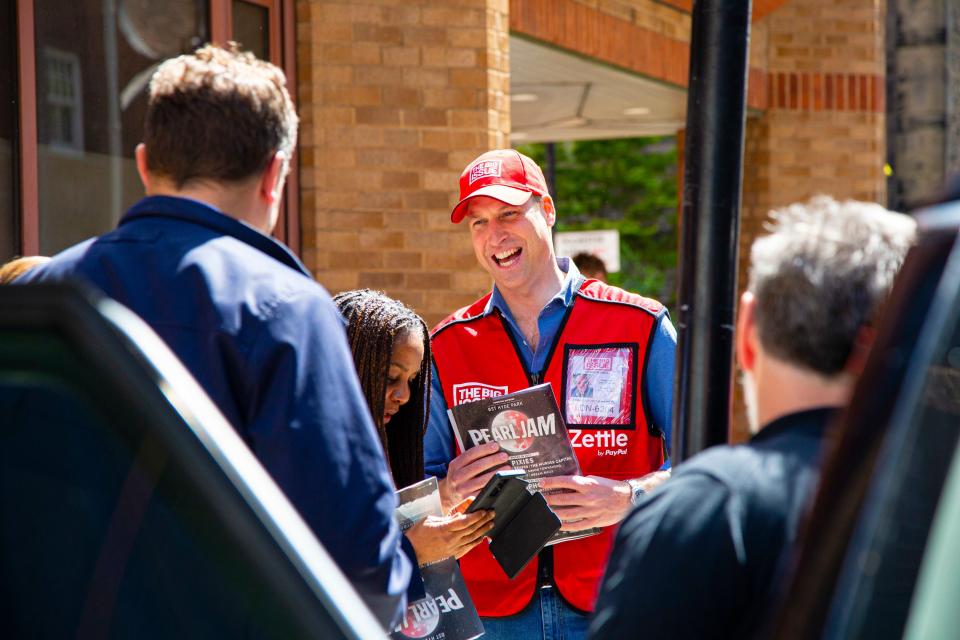Metropolitan Police refers 8 more cases over strip searches of children as watchdog investigates

The Metropolitan Police has made a further eight voluntary referrals to the police watchdog involving strip searches of children by officers, in a development labelled “shocking and deeply disturbing” by London’s mayor.
The referrals relate to separate incidents, between December 2019 and March 2022, where children aged 14 to 17 were either strip searched by officers in custody or were subject to more intimate searches in the wider community, Scotland Yard said.
The Independent Office for Police Conduct (IOPC) has already returned two of the referrals for internal investigation by the Met, and the watchdog is yet to announce whether it will investigate the remaining five cases, the force said.
The revelation comes after it emerged last week that four police officers had been served with gross misconduct notices in relation to the strip-searching a 15-year-old Black schoolgirl, identified only as Child Q, in a case which has sparked protests and widespread condemnation since news of it broke in March.
A month earlier, the watchdog confirmed it was investigating the strip-search of another child by the Metropolitan Police, and of another anonymous teenager given the pseudonym Olivia by the BBC.
Sadiq Khan said on Friday he was “extremely concerned” by the new referrals to the IOPC.
“It is shocking and deeply disturbing that so many cases of children being strip searched by the police have been referred to the IOPC,” London’s mayor said.
It is “entirely right that these cases have now been referred” to the watchdog, Mr Khan said, adding that he “will be following the outcomes closely”, while the Mayor’s Office for Policing and Crime “will be writing to Her Majesty’s Inspectorate of Constabulary to bring this matter to their attention”.
Announcing the eight additional referrals, the Met’s Deputy Assistant Commissioner Laurence Taylor said: “We understand the trauma and lasting impact these types of searches can have on people, especially young people, and understand the public’s concerns following several cases.”
The force has “already made a number of changes to the way we work to ensure that officers consider the child first and take a safeguarding approach,” Mr Taylor said, adding that the force is in the process of reviewing complaints received over the past three years in relation to strip searches involving children.
“Strip searches in custody and searches that expose more intimate parts outside of custody are important in ensuring the safety of the person being searched as well as protecting communities from drugs and weapons. But they must, of course, be carried out appropriately and in line with our policy,” he said.
“We have already confirmed three cases have been referred to the Independent Office for Police Conduct (IOPC) for that important independent oversight of how police carried out those searches – these cases are known as ‘Child Q’, ‘Child A’ and ‘Olivia’.
“We have now made a further eight voluntary referrals to the IOPC.”
Both Child Q and Olivia are said to have been menstruating at the time of the strip-search, with the latter’s mother alleging that her 15-year-old daughter, who is autistic, later attempted suicide after her arrest in December 2020.
Olivia was handcuffed and had her underwear cut in front of male officers during the search, having allegedly been in custody for more than 20 hours before the search was prompted by the discovery of a sharpened stick and a small blade, which was for the purpose of self-harming, her mother said.
Child Q’s family members described her as changing from a “happy-go-lucky girl to a timid recluse that hardly speaks”, and said that the teenager has begun to self-harm.
A safeguarding report found racism was “likely” to have been a factor in the “unjustified” search of Child Q, which also took place in 2020 after she was wrongly suspected of carrying cannabis at school.
UK news in pictures











Scotland Yard said on Friday that since the publication of the safeguarding report, it has ensured that its officers and staff “have a refreshed understanding of the policy for conducting a ‘further search’ particularly around the requirement for an appropriate adult to be present”.
Officers have also been given “advice around dealing with schools, ensuring that children are treated as children and considering safeguarding for those under 18”, the force said, adding: “‘Adultification’ is a subject we need to understand more and training is being delivered, in the first instance, to all frontline officers in Central East Command Unit, which covers Hackney and Tower Hamlets.”
The force said it has also introduced new measures meaning that – in addition to a conversation with a supervisor and the presence of an appropriate adult – an inspector must now give authority before a search takes place, while a report must be submitted “to ensure safeguarding the child is the priority”.
Mr Khan said he “is fully committed to holding the Met to account on implementing any recommendations from the IOPC investigations and delivering the changes and improvements to the Met which all of London’s communities deserve”.
This article was amended to reflect that the number of referrals was in fact eight, rather than seven as previously reported, after Scotland Yard updated their figures.

 Yahoo News
Yahoo News 
